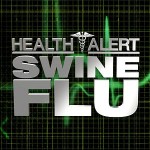The swine outbreak continues to haunt us; you may have many questions regarding travel and health. Warnings stating that individuals are susceptible to be infected by the flu at crowded places surely make us wonder if it is safe to travel by air.
Let us take a look at some of our questions answered by Dr. Mark Gendreau, senior staff physician and vice chair of emergency medicine at Lahey Clinic in Burlington, Mass., and assistant professor of emergency medicine at the Tufts School of Medicine in Boston, United States. I came across this information in the New York Times and thought it would be useful for the readers.
Is it still safe for you to travel by air? 
Yes, it is largely considered safe to travel by air. There is no need to hesitate when flying or having one of my family members fly.
Here is a look at how the risk is minimized when traveling by air. The air circulation patterns onboard typical commercial aircraft are side-to-side — a so-called laminar pattern. The air enters the cabin from the overhead, circulates across the aircraft in a circumferential manner and exits the cabin near the floor.
According to studies published in 2004 there is little to no front-to-back, or longitudinal, airflow in the aircraft. The airflow is compartmentalized into sections within the cabin thus limiting the spread of airborne particles throughout the passenger cabin.
• However there are no concessions on continuing to practice good hand hygiene. Always carry an alcohol-based hand sanitizer that has at least 50 percent alcohol content.
• Use it every time you sneeze and at regular intervals.
Individuals with health problems have to take extra precautions while taking a decision. If you have a weak immune system, avoid nonessential air travel for the time being.
• People who recently had a prolonged hospitalization or under immunosuppressive medications also come under this group.
• Do consult your doctor before making travel arrangements if you are suffering from any stable preexisting medical conditions. The changes in cabin pressure during routine commercial flight can exacerbate these conditions.
Will the flu shot for this season protect you against swine flu?
Remember that annual flu vaccines particularly provide protection against the viral strains predicted to cause the flu during that year. The vaccine will not prevent you from getting the flu, but it reduces your chances of getting gravely ill or dying. There is a growing body of scientific evidence to back this observation.
The presence of vaccine in your body stimulates the immune system to produce neutralizing proteins called antibodies that act specifically against that particular influenza strain or even closely related strains. As the influenza strains constantly change annual vaccination is essential.
As annual influenza vaccination works up special immune cells in your body which play a pivotal role in your body’s immunity, the ability of unrelated influenza viruses like swine flu to replicate is reduced greatly.
Are children more prone to be infected by swine flu while traveling?
Generally, younger children are more vulnerable to infections. However, children seem to be faring well in this particular outbreak. If the children are healthy and older than 2 years of age they are not at greater risk than adult people while traveling. However, do not under estimate the importance of maintaining good hand hygiene. Newborns and infants may be at greater risk, hence it is safer to postpone nonessential travel for them.


